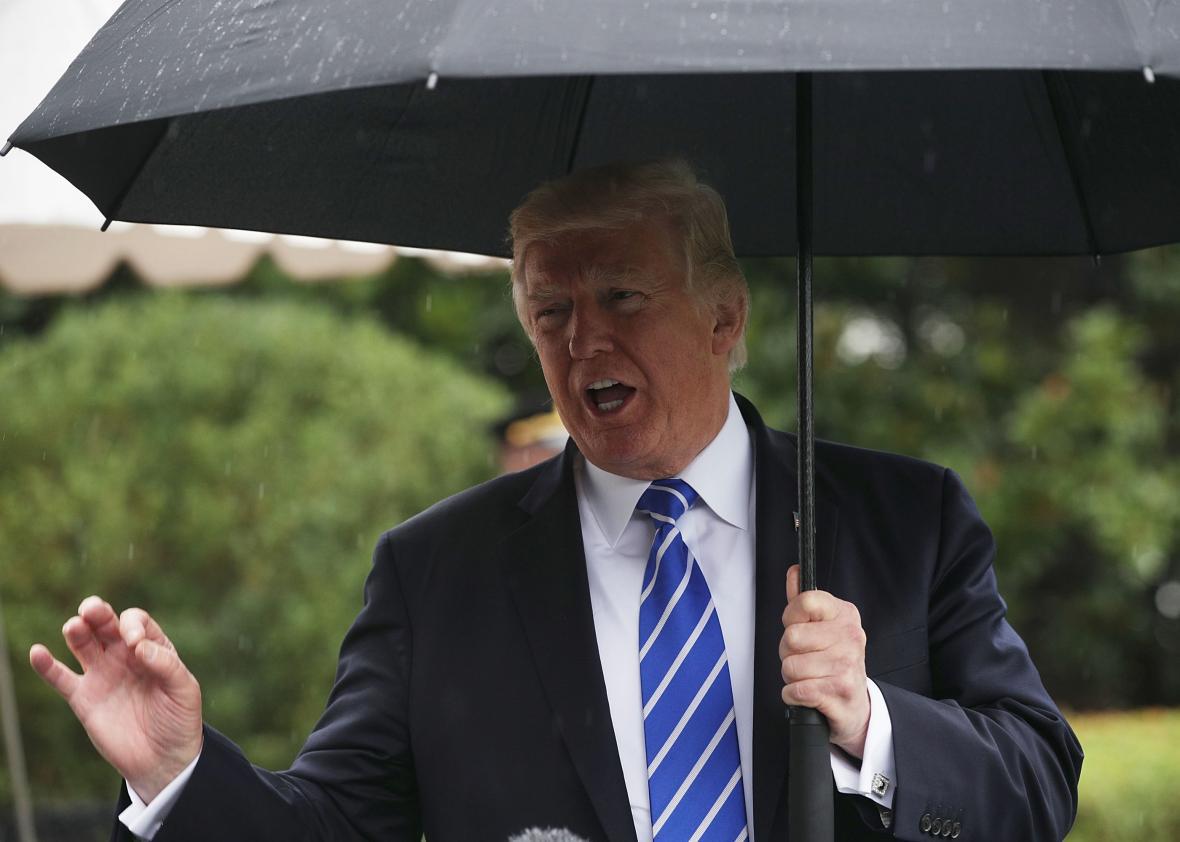President Donald Trump may not understand exactly how or why DACA is ending, but his Department of Homeland Security does. The federal agency that implemented the policy now has six months to phase it out, a buffer period meant to blunt the impact of Trump’s reversal and give Congress time to act. DHS has outlined its wind-down plan in a memo and FAQ, revealing that the agency will revoke individuals’ DACA status on a rolling basis beginning next March. As immigrants lose their status, they will be stripped of their work permits and subjected to possible deportation.
An extended phase-out is certainly more humane than an immediate nullification of DACA, but it poses grave political and humanitarian risks of its own. The DHS timeline ensures that a new group of beneficiaries will lose their status and accompanying benefits every day from March 2018 through early 2020. Unless Congress legislates a fix, then, the consequences of DACA’s repeal will remain lodged in the news cycle through the next election and beyond.
DHS’s schedule for repealing DACA is essentially a series of arbitrary cut-off dates. From Tuesday onward, DHS will not accept new DACA applications. Current beneficiaries whose status expires between September 5, 2017 and March 5, 2018 must apply for a renewal by October 5, 2017. Individuals who renew their status by October 5 will keep it for two years from their renewal date. The unluckiest DACA recipients will lose their status on March 6, 2018. David Lapan, a DHS press secretary, told me the final group of DACA-protected immigrants will be stripped of their status in January or February of 2020.
The repercussions of losing DACA will be swift and severe. Former beneficiaries will lose their work permits, forcing them out of their jobs. DHS has announced that it will give DACA information to immigration authorities if asked; many beneficiaries may thus retreat back into the shadows to avoid contact with law enforcement. Texas has already declared that it will cancel the driver’s licenses of DACA recipients once they lose their status; more states will likely follow its lead. In several states, beneficiaries will lose their in-state college tuition when their DACA status expires. In others, recipients will be expelled from higher education altogether, as a handful of states bar undocumented immigrants from attending public universities unless they have DACA. And Dreamers serving in the military may be discharged once their DACA status is cancelled.
Providing Dreamers with a grace period before ripping away their benefits is less cold-hearted than instant invalidation of DACA. But DHS’s implementation plan guarantees that the dimensions of Trump’s cruelty will become painfully apparent. Most Americans don’t seem to grasp that DACA provides only basic benefits for a small group of people and no pathway to citizenship. The rolling cancellation of DACA status—likely to be highly publicized, as the entire DACA fight has been—will provide an opportunity to educate them, as an appealing, telegenic group of young strivers asks why Trump wants to rip them away from their families and the only country they’ve ever known.
Will Republicans have an answer to that question? Unless they replace DACA soon, they’d better start working on a good explanation for why they didn’t stand up to the president. DHS is a well-run agency; unlike much of the Trump administration, it can be counted on to keep its word and stay on schedule. Barring congressional action, the federal government will soon start picking off Dreamers one by one, and will continue to do so for the bulk of Trump’s presidency. The repeal of DACA will shatter many lives. Those responsible for that decision won’t be able to hide from the consequences.
